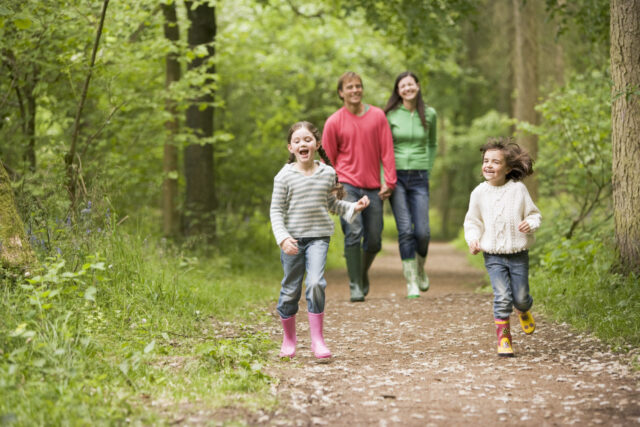The UK is currently in need of more than 8,500 foster homes for children and young people. Current world events could see this number drastically increase over the next year. Following the results of a recent report, a local fostering organisation and social enterprise is encouraging single people to come forward and consider caring for vulnerable children in need of a safe place to call home.
A report commissioned by Quality Foster Care reveals that more than 30% of people across the South East are unaware that single people can foster [1], which could negatively be impacting foster care recruitment at a time when demand is greater than ever.
There are a record 69,000 children in care living with around 55,000 foster families in the UK, and in the South East of England alone another 830 foster carers are needed [2]. With recent data showing that there are over 1,000,000 single person households in the South East, it would take less than 1% of this figure to meet the current shortfall in this area [3].
Quality Foster Care, which has an office in South Benfleet, is keen to advocate the single carer households it has across the county and celebrate the amazing work they do in helping to turn young lives around, offering a safe space to call home while also giving themselves a stable and rewarding career.
Karen Walker, 53, from Canvey Island, has been a full-time foster carer with Quality Foster Care for six years, having started in 2004 so she could work alongside raising her own two daughters, Charlotte and Danielle. She currently cares for a teenage girl, and during her 13 years as a carer, Karen has opened her home to 59 other vulnerable children and young people.
Reflecting on her experience as a single foster carer, Karen says: “I had no idea that you could be a foster carer if you’re single but I’m so glad I looked into it. Being single has given me the time to help so many young people, from a variety of different backgrounds, from young children to older teens. I’ve been able to support asylum seeking children as they adapt to life in the UK and it’s been such a rewarding experience.
“Being a single carer means I’ve only had females in my home, it’s been just me, my daughters and my foster children. So, I’ve been able to support young girls who have experienced various traumas, helping them to heal. The comprehensive support available through Quality Foster Care has meant I’m well trained for this and am confident in my abilities to support children who have experienced all kinds of trauma.
“To anyone considering becoming a single foster carer, I strongly encourage you to check it out. I’ve been so lucky in that I have a wonderful support network around me; my friends and family have been incredible. The support workers at Quality Foster Care go above and beyond to let you know they are always there to call on, if you need any help, never be afraid to ask.”
Commenting on the need for more single people to consider fostering a child or young person, Louise Geddes, head of fostering operations at Quality Foster Care, said: “At a time when we’re already in need of thousands of safe homes for children living in the UK, world events have drastically increased the need and urgency of finding foster carers for children and young people. We’re encouraging single people to consider fostering. Someone’s marital or relationship status, gender, sexuality, religion or ethnicity does not stop them providing excellent care to a child in need.
“It’s also extremely important to us that we have foster carers from different backgrounds and communities to reflect the diversity of the children in the care system. Today, there is national shortage of more than 8,500 foster carers but we will continue to see this number increase over the next year, and beyond.
“Fostering comes in many forms and can be tailored towards the needs and lifestyle of the foster parent, or parents, and those in their care. Foster carers can work flexibly as respite or short-term foster carers, or they can have foster children and young people living with them long-term, meaning they would remain in care until they feel ready to live independently. If you’re a kind, compassionate individual and would like to get some more information and discuss the different types of fostering, please do get in touch. You will not be committed to taking on a placement at any stage of the process.
“To be considered, you must be 21 years of age and have the key qualities needed to look after children in care. This includes single people, co-habiting couples, same sex couples and people living in rented accommodation, but there must be a spare room for each foster child.”




